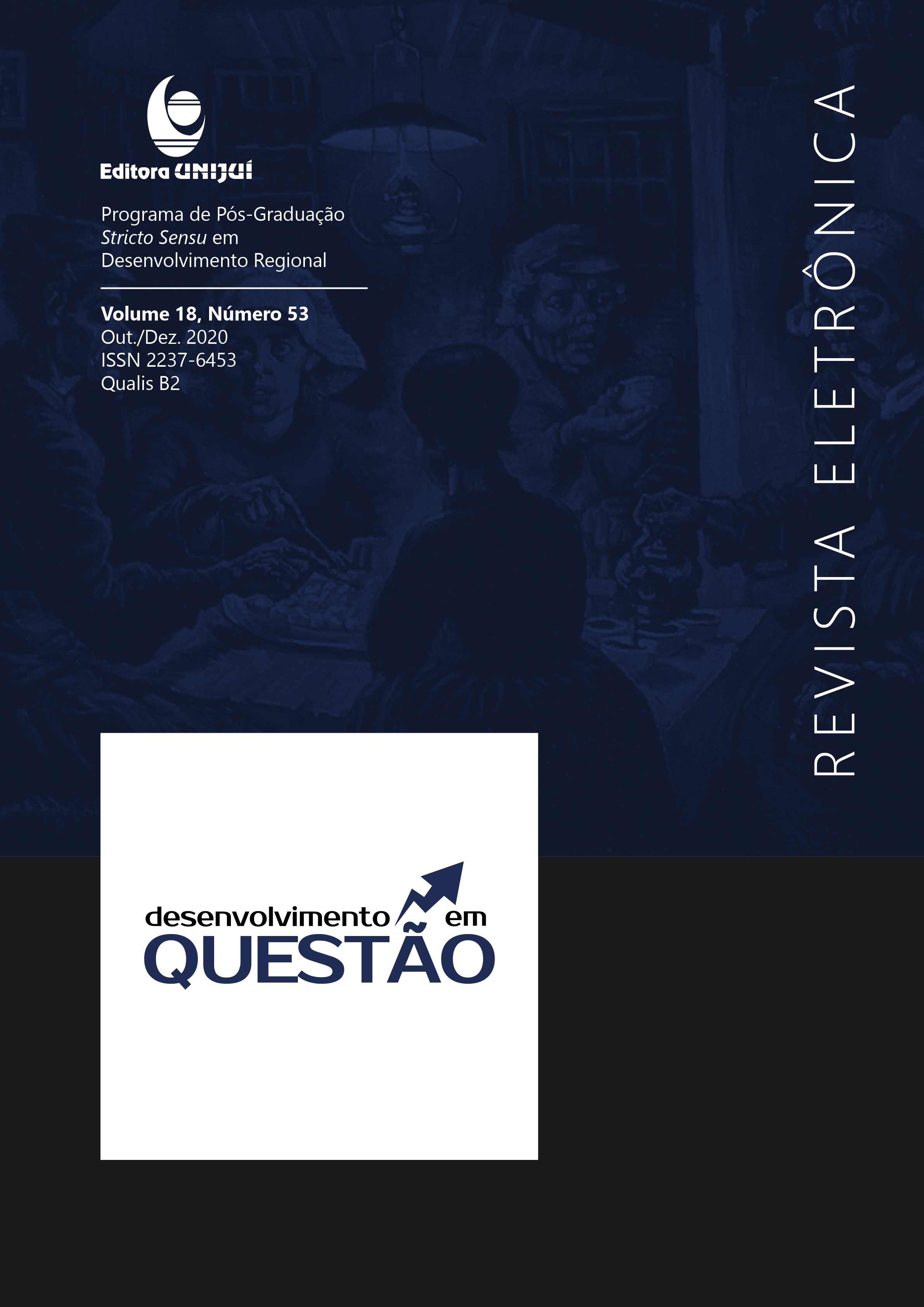AGRARIAN HERITAGE AS A DEVELOPMENT STRATEGY FOR THE AUTONOMOUS COM-MUNITY OF CASTILLA-LA MANCHA (SPAIN) AND ITS APPLICABILITY TO THE MICRO-REGION OF CANOINHAS (SANTA CATARINA, BRAZIL)
DOI:
https://doi.org/10.21527/2237-6453.2020.53.91-104Keywords:
Agrarian heritage. Autonomous community of Castilla-La Mancha. Canoinhas Micro Region. Re-gional development.Abstract
The objective of this article is to present studies carried out in the territory of the Autonomous Community of Castilla-La Mancha (Spain), in order to investigate strategies of development based on the concept of agrarian heritage, and subsequently consider the agrarian assets of the region of Contestado (Brazil), with a view to the establishment of similar strategies of regional development. The methodological approach considered the examination of the plans for the development of Castilla-La Mancha, based on fieldwork carried out in the provinces of that Spanish territory and supported in the review of literature on the conceptual category of agrarian heritage. It is concluded that the search for strategies of regional development can be based on similar actions carried out in other territories and that their implementation will require the mobilization of the social and political agents of the micro-region of Canoinhas.
Downloads
Published
How to Cite
Issue
Section
License
By publishing in Revista Desenvolvimento em Questão, authors agree to the following terms:
All works are published under the Creative Commons Attribution 4.0 International License (CC BY 4.0), which allows:
Sharing — to copy and redistribute the material in any medium or format;
Adaptation — to remix, transform, and build upon the material for any purpose, even commercially.
These permissions are irrevocable, provided that the following terms are respected:
Attribution — authors must be properly credited, a link to the license must be provided, and any changes made must be indicated.
No additional restrictions — no legal or technological measures may be applied that legally restrict others from doing anything the license permits.
Notices:
The license does not apply to elements that are in the public domain or covered by legal exceptions.
The license does not grant all necessary rights for specific uses (e.g., image rights, privacy, or moral rights).
The journal is not responsible for the opinions expressed in the articles, which are the sole responsibility of the authors. The Editor, with the support of the Editorial Board, reserves the right to suggest or request modifications when necessary.
Only original scientific articles presenting research results of interest that have not been previously published or simultaneously submitted to another journal with the same purpose will be accepted.
Mentions of trademarks or specific products are intended solely for identification purposes and do not imply any promotional relationship by the authors or the journal.
License Agreement (for articles published from 2025 onward): Authors retain the copyright to their article and grant Revista Desenvolvimento em Questão the right of first publication.











